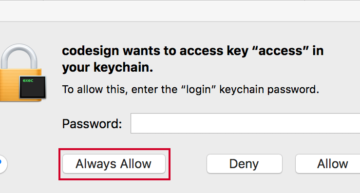
Are Minisites Dead?
Quick Summary of Contents
If you’re wondering whether minisites are still relevant in today’s forever-changing digital world, the answer is not as straightforward as a simple “yes” or “no”.
While the popularity of minisites may have declined over the years, they can still serve a purpose for those seeking to establish a presence online. In this day and age, there are a plethora of options to choose from when it comes to building a website, so it’s important to weigh the pros and cons of each approach.
Today, we’ll dive into the world of minisites and explore what they have to offer in this ever-evolving digital age.
Are Minisites Really Dead?
In my opinion, the short answer is no, minisites are not dead. In fact, they can still be a viable option for those looking to create an online presence.
However, much has changed significantly since the heyday of minisites. There are now a multitude of options available to website owners. But before we get into the nitty gritty details of whether or not minisites are truly dead, let’s level set for those of you that are not familiar with minisites.
What are Minisites?
A minisite is a small website, typically consisting of only a few pages often 30 pages or less. The purpose of a minisite is to promote a specific product, service, or offer. Unlike an authority site or niche site, a minisite is not designed to provide a comprehensive resource on a particular topic. Instead, a minisite is focused on a specific goal, such as selling a product or generating leads.
For example, PracticalSEOGuide.com and LocalDomainSEO.com are both minisites designed to sell a product and generate leads for those desiring search engine optimization assistance. Although some would categorize both sites as landing pages, they are, in fact, minisites, consisting of only one page.
Minisite Reveal: AustinDeer.com.
Another example of a minisite is AustinDeer.com, a website launched in 2020 and comprised of fewer than 10 pages that provides information about deer-watching locations in the greater Austin, Texas area. This site aims to generate revenue through various affiliate programs — CJ.com, Google Adsense, and Amazon affiliates — once traffic reaches a certain level.
I’m sharing this particular minisite because I prefer not to share my most profitable ones due to the cut-throat, competitive nature of copycats. By reviewing AustinDeer.com, you’ll get an idea of what a minisite can be like.
If you’re interested in more examples, I recommend checking out IncomeSchool.com, NichePursuits.com, SmartPassiveIncome.com, and KingdomBloggers.com for additional insight and ideas on how profitable minisites can be.
Comparing Minisites to Authority Sites, Niche Sites, and Hyper-Niche Sites
Contrasting with minisites, authority, niche, and hyper-niche websites are different. Websites categorized as authority, niche, and hyper-niche are usually larger in size, with authority sites often having 250+ pages, niche sites having 100+ pages, and hyper-niche sites having 30+ pages. These websites typically require regular content updates, with authority sites needing updates on a daily basis, niche sites on a weekly basis, and hyper-niche sites on a monthly basis.
Authority Websites
Authority websites are often recognized as a go-to reliable and trustworthy source of information on a particular topic. Examples of authority websites are DomainSherpa.com or iSixSigma.com.
Niche Websites
Niche websites typically focus on a specific topic or niche, such as gardening or cooking. Examples of niche websites are BobbleHeads.com and DirtBikePlanet.com.
Hyper-niche websites
A hyper-niche website often targets a very specific sub-niche, such as organic gardening or vegan cooking. Examples of authority hyper-niche websites are VidaliaOnions.com or OneWord.Domains.
Regarding AustinDeer.com, I only update the website when I have the opportunity and when we discover new locations. A minisite like AustinDeer.com is not designed to attract a large audience. Instead, it appeals to a very specific niche, or even hyper-niche, the audience of local and visiting deer enthusiasts who search online for this type of entertainment and recreation.
Can a 5-10 page minisite rank well in Google and other search engines?
The question arises as to whether a minisite consisting of 5-10 pages can rank well in Google. The answer is yes, it is possible, but there are certain conditions that need to be considered.
First, the topic of choice is the foremost determinant of whether a minisite can rank well in Google or any other search engine. It is critical to consider whether the chosen topic can generate substantial search traffic and lead to lucrative monetization. On the other hand, if the topic only yields low search traffic and generates little to no monetization, it may not be a viable option.
The next factor to consider is the competitiveness of the targeted keyword(s). It is advisable to select relatively uncompetitive keyword(s) for a minisite to avoid expending excessive time, money, and effort in trying to achieve a high ranking in search engines, particularly when the chances of success are slim due to high competition.
The third point to consider is that the minisite should be optimized well for the targeted keyword(s). It requires having high-quality content, authentic backlinks from reputable sources, and a website that is well-designed and mobile-friendly. These are essential factors that need to be handled with great care because they can significantly affect the overall SEO health and ranking of the minisite on search engines.
Fourth, be sure not to neglect on-page and off-page search optimization for your minisites.
For example, I had a minisite that appeared to be doing well, but upon closer inspection, it was discovered that the title was using H2 tags instead of H1 tags. This was a significant issue that was hindering the website’s ranking. Once I corrected the tags, the website began to rank well in search engines and improve its overall performance. But prior to this fix, the site was essentially worthless, much like a car without wheels.
This experience brings to mind another instance where I had a WordPress website that I unintentionally deindexed by clicking on a single checkbox during its development. It took me several months to identify and correct this error, but I ultimately succeeded in getting the website to rank well and perform well in terms of monetization.
Finally, it is crucial to avoid low-quality or duplicate content at all costs. While it is now possible to use AI content creation apps like ChatGPT to generate content for minisites, one must be cautious. AI-generated content may contain errors that can be difficult for an untrained person to spot. Therefore, one should exercise care when using AI-generated content and AI apps for content creation. It is also important to stay away from black hat SEO tactics, low-quality, or irrelevant backlinks in your minisite endeavors.
The Monetization of Minisites
Let’s discuss minisite monetization for a moment. If you have successfully launched a minisite that is generating search traffic, then congratulations! BEFORE you proceed to discuss the various monetization options, ensure that your minisite includes the following pages and the appropriate monetization information in the footer: Privacy Policy, Contact Us, and About. This is crucial before approaching any monetization or affiliate network.
As for minisite monetization, there are two primary options depending on the minisite’s topical nature and type:
- Display ad networks such as MediaVine, Raptive, Ezoic, or Google Adsense (including YouTube);
- Affiliate networks such as CJ.com, ShareASale.com, ClickBank, or Amazon Affiliates;
Each affiliate network and company has its own set of requirements that must be met before being approved for monetization.
In addition, when it comes to realized minisite monetization on a monthly basis, it’s difficult to give an exact number without knowing the specifics of the minisite. Some minisite owners report earning anywhere from a few dollars to several hundred dollars per month in ad revenue.
However, the most lucrative monetization option is to create your own product to sell or become your own media and advertising company, soliciting companies that align well with your brand and working out a direct advertising agreement with them. Minisite owners that take this less traveled path report earning anywhere from a few hundred dollars to several thousand dollars per month in ad revenue.
These insights are crucial considerations for successful and profitable minisites that must be taken into account when aiming to rank well in Google and other search engines.
The Future of Minisites
Considering the rise of ChatGPT and its impact on content creation and search, the future of minisites appears uncertain.
It’s intoxicatingly tempting to rely solely on AI-generated content to retrieve information faster than conventional methods. After all, why bother with traditional Google search when AI can deliver answers with fewer clicks and in less time than it would take me to even begin researching a topic?
However, the accuracy of AI-generated content varies and could result in inaccurate information, as evidenced by my inquiry about the longhorn sculpture in Austin, Texas outside of the Erwin Center, AI stating stated that the sculpture was 28 feet tall, 14 feet wide, and had six legs.
YIKES! This reality highlights the danger of relying solely on AI-generated content for minisites or other content creation. It’s crucial to exercise caution when developing minisites and ensure the content is accurate, relevant, and not solely generated by AI.
Although AI-generated content in general has its drawbacks, minisites still have a place in the digital realm, given the right circumstances such as a suitable topic, target audience, and solutions offering.
Therefore, minisites are not obsolete and can be a viable option for the appropriate persons or entities. Should you research and be led to develop a minisite, I wish you the best in your minisite adventures.















Leave a Comment